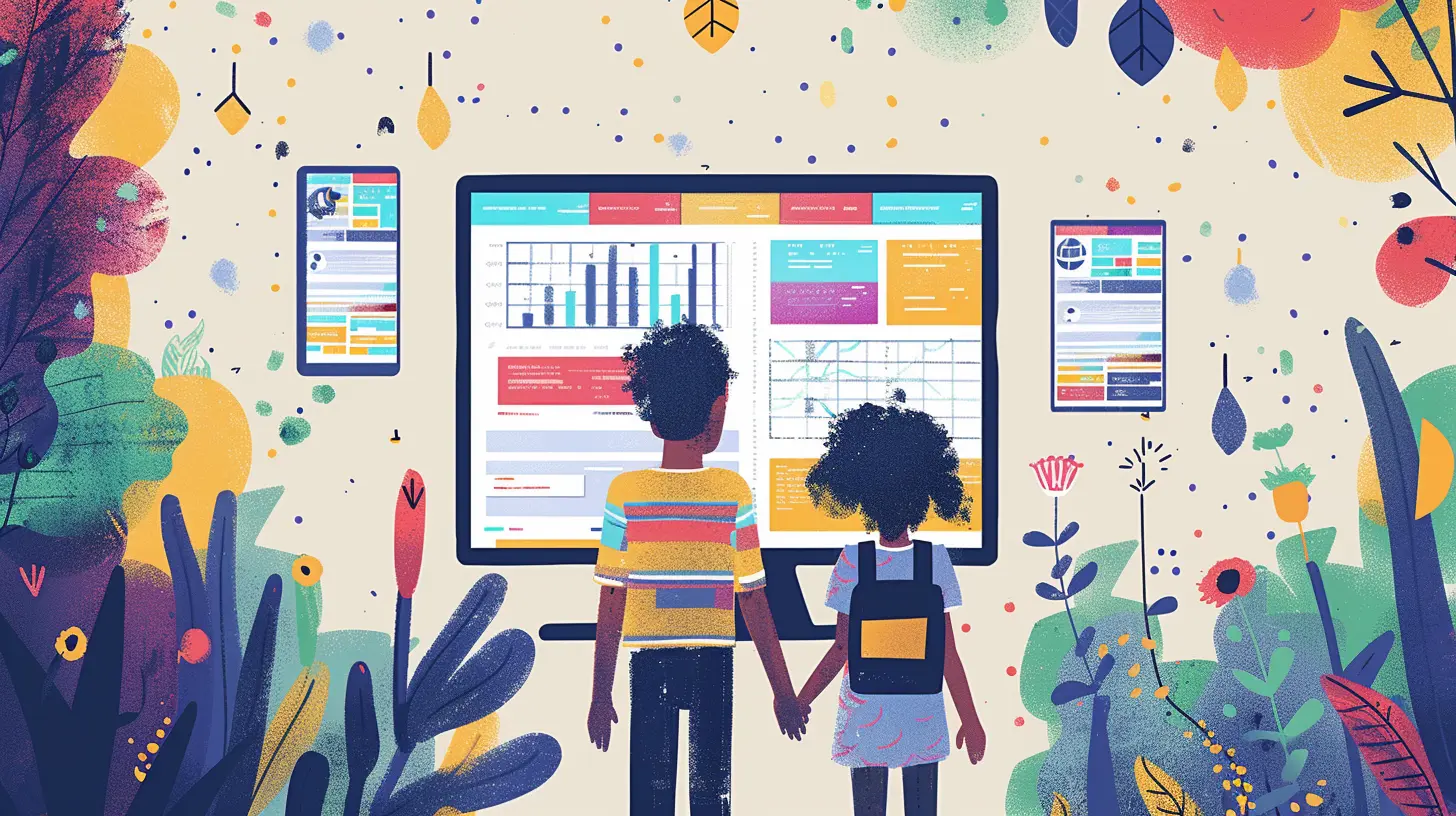1 May 2025
Technology is evolving at lightning speed, and coding has become one of the most valuable skills a child can learn. But let’s be honest—most kids won’t wake up one day and say, "I want to learn how to code!" That’s where parents come in.
Encouraging children to embrace coding at school isn’t just about improving their tech skills; it’s about preparing them for the future. So, how can parents make coding exciting and meaningful for their kids? Let’s dive deep into this topic and uncover the crucial role parents play in making coding a core part of their child’s learning journey. 
Why Is Coding Important for Kids?
Before we talk about how parents can help, let's first understand why coding is essential in today’s world.1. Coding Boosts Problem-Solving Skills
Coding is like solving a puzzle. Every time a child writes code, they are faced with challenges that require logical thinking. They must break problems into smaller parts and find creative solutions—a skill that helps them in all aspects of life.2. Enhances Creativity and Innovation
Think about coding as a blank canvas. With just a few lines of code, kids can create websites, games, animations, or even apps! This encourages them to tap into their creativity and build something exciting from scratch.3. Prepares Kids for Future Job Opportunities
According to research, technology-related jobs are booming, and coding is at the heart of many industries. Whether your child wants to become a software engineer, data scientist, or even an entrepreneur, coding gives them a competitive edge.4. Improves Persistence and Resilience
Let’s face it—coding involves making mistakes. A missing semicolon or incorrect syntax can completely break a program. But this teaches kids a crucial life lesson: failure isn’t the end, it’s part of the process. They learn to debug and try again, building resilience along the way.
The Role of Parents in Encouraging Kids to Code
Parents are the first teachers children have, and their influence is significant. But many parents avoid tech-related topics because they don’t know how to code themselves. The good news? You don’t need to be a coding expert to support your child!Here’s how you can encourage your child to embrace coding at school:
1. Create a Positive Attitude Towards Coding
Many kids hesitate to learn coding because they believe it's too complicated or only for geniuses. Parents can change this perception by:- Talking about coding in a fun and exciting way.
- Showing them real-world applications of coding, like video games, apps, or robots.
- Encouraging them to approach coding as a fun challenge rather than a scary subject.
2. Encourage Hands-On Learning with Fun Activities
Kids learn best when they’re actively engaged in the process. Here are some simple ways to make coding more exciting:- Introduce them to beginner-friendly coding platforms like Scratch, Code.org, or Tynker.
- Play coding-related games like Minecraft Education Edition or Roblox Studio.
- Encourage them to join coding competitions, clubs, or hackathons at school.
3. Provide the Right Resources and Tools
Supporting your child’s coding journey means giving them access to the best tools. Some great learning resources include:- Online Platforms: Codecademy, Khan Academy, Coursera
- Books: Hello Ruby by Linda Liukas, Coding Games in Scratch by Jon Woodcock
- Coding Kits: Raspberry Pi, LEGO Mindstorms, Arduino
By equipping your child with the right resources, you make their coding journey smoother and more enjoyable.
4. Celebrate Their Progress (No Matter How Small!)
Remember how excited kids get when they build a LEGO tower? Coding projects can inspire the same energy.- Celebrate even the smallest achievements.
- Show enthusiasm when they create their first animation or website.
- Encourage them to teach you what they’ve learned—it boosts their confidence and reinforces their knowledge.
5. Be Patient and Supportive
Coding has a learning curve. Some kids grasp concepts quickly, while others struggle with debugging. Instead of pressuring them, be patient. Acknowledge their frustration and remind them that mistakes are normal. Share stories of famous programmers who faced challenges but didn’t give up.6. Encourage a Growth Mindset
One of the best ways parents can help is by fostering a growth mindset—the belief that skills can be developed through effort. Teach your child to embrace challenges, stay persistent, and continually improve. This mindset will help them in coding and every other aspect of life.
How Schools and Parents Can Work Together
While schools provide structured coding lessons, parental involvement makes a huge difference. Strong collaboration between teachers and parents can create a powerful learning environment.1. Stay Informed About School Coding Programs
- Attend school meetings and workshops on coding.- Ask teachers about the curriculum and how you can support your child at home.
- Encourage schools to organize coding events, hackathons, or guest speaker sessions.
2. Motivate Kids to Apply Coding in Real Life
Coding isn’t just about writing lines of text—it’s about problem-solving in real-world situations. Parents can:- Encourage kids to build a small website for a family project.
- Help them automate simple tasks with code (e.g., organizing a personal to-do list).
- Support them in participating in STEM fairs or coding contests.
3. Join Your Child’s Coding Journey
Even if you’re not tech-savvy, learning alongside your child can be an exciting experience. Consider:- Taking a beginner coding course together.
- Watching coding-related YouTube tutorials.
- Experimenting with fun projects like building a game or animating a story.
When parents show an interest, kids feel motivated to keep learning. 
Overcoming Common Roadblocks
Encouraging kids to learn coding isn’t always smooth sailing. Here are some common challenges parents face—and how to tackle them.1. "My Child Isn’t Interested in Coding"
Not every kid develops an instant love for coding. Try to:- Connect coding to their interests (e.g., coding a music playlist generator for music lovers).
- Let them experiment with different coding platforms.
- Avoid forcing it—sometimes, the right approach takes time.
2. "I Don’t Know Anything About Coding!"
That’s okay! You don’t have to be an expert, just a motivator. Encourage self-learning and explore resources together.3. "My Child Finds Coding Too Difficult"
Break down concepts into bite-sized lessons. Encourage them to start with visual programming (like Scratch) before moving to text-based coding (like Python).Final Thoughts
At the end of the day, coding isn’t just about typing commands into a computer—it’s about nurturing creativity, building resilience, and preparing for an exciting future. Parents play a crucial role in making this learning journey enjoyable, providing motivation, and showing kids that coding is not just for tech geeks—it’s for everyone.So, why not spark that curiosity today? Who knows—your child might just be the next big innovator in tech!









Sybil Stewart
Empowering parents to actively engage in their children's coding journey is vital. Your support can ignite curiosity, boost confidence, and inspire a lifelong passion for learning in the digital age!
December 19, 2025 at 9:15 PM